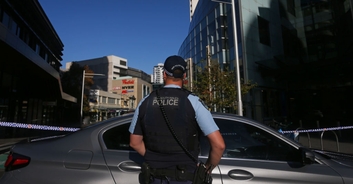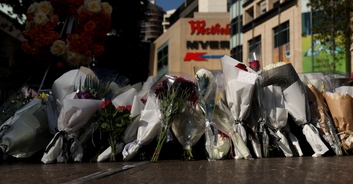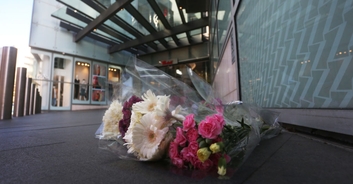A young woman was burned to death after filing a sexual harassment complaint against her school headmaster, the BBC reports.
Nusrat Jahan Rafi, a 19-year-old from a small village called Feni near Dhaka in Bangladesh, was studying at a madrassa (Islamic school) when she reported that on March 27, her headmaster called her into his office, and allegedly repeatedly touched her in an inappropriate manner.
Nusrat then reportedly went to the local police station to tell authorities about her ordeal. But rather than helping and protecting the young woman, a police officer recorded Nusrat describing the alleged assault in detail, and then was allegedly heard telling her that the assault was "no big deal".
Many women in Bangladesh stay silent about alleged assault out of fear of being shamed by either their families or by their local communities, and once her headmaster had been arrested, a similar fate befell young Nusrat.
A group of people took to the streets to demand Nusrat drop the charges and the teacher be released, and as male students as well as local politicians joined the cause, her family began to grow concerned. When Nusrat returned to school to take her exams on April 6, her brother tried to accompany her, but was not allowed inside the school.

"I tried to take my sister to school and tried to enter the premises, but I was stopped and wasn't allowed to enter," explained Mahmudul Hasan Noman, Nusrat's brother. "If I hadn't been stopped, something like this wouldn't have happened to my sister."
According to a statement from Nusrat, once she entered the school, she was taken to the rooftop of the school, allegedly told that one of her friends was being beaten up. But when she got to the rooftop, four to five people dressed in burqas grabbed her, and demanded she retract her statement.
When she refused, they doused her in kerosene, and lit her on fire.

Doctors at a local hospital discovered that as much as 80 percent of Nusrat's body was covered in burns, and when they transported her to Dhaka Medical College Hospital, fearing she might live through the ordeal, she recorded a dying message.
"The teacher touched me, I will fight this crime till my last breath," she said, while also identifying some of the students who had threatened her over her alleged assault. She died on April 10, and her funeral was attended by thousands, as her attack made national news.
According to Banaj Kumar Majumder, the chief of the Police Bureau of Investigation in Bangladesh, the attackers wanted to make Nusrat's death look like a suicide, but Nusrat was rescued after they fled the scene.
"One of the killers was holding her head down with his hands, so kerosene wasn't poured there and that's why her head wasn't burned," explained Majumber, which was the reason she was able to give a statement about what had happened that day.
Police have since arrested 15 people, including two male students involved in the initial protest, while seven of those were allegedly involved in the murder. In the wake of the attack, many women in the country have taken to Facebook to give their view on the assaults that occur.

"Many girls don't protest out of fear after such incidents. Burqas, even dresses made of iron cannot stop rapists," said Anowar Sheikh on the BBC Bengali Facebook page, while Lopa Hossain says the ordeal makes it difficult to dream of having a daughter in the country.
"I wanted a daughter my whole life, but now I am afraid. Giving birth to a daughter in this country means a life of fear and worry."
There are around 940 reported incidents of rape in Bangladesh, according to the women's rights group Bangladesh Mahila Parishad. But they say that the true number could be much higher than that.










